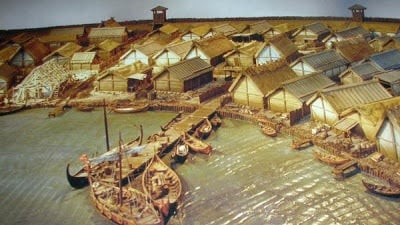Podcast: Play in new window | Download
At the start of 867, there were four major Anglo-Saxon kingdoms in Britain. By 874, three of the four – Northumbria, East Anglia, and Mercia – had lost their independence. That’s a timespan of only 7 years, and in that 7 years the political landscape of Britain had changed dramatically and permanently.
That’s insane. For scale, that’s just barely longer than Lost. Imagine being a free kingdom back when you thought something interesting was going on with Walt, and then being fully under the control of a foreign government by the time that you realized that everyone was just hanging out in a church with Hurley… for some reason.
And as an aside, what the hell was Lindelhoff thinking when he wrote that? It’s been over a decade and I’m still annoyed.










